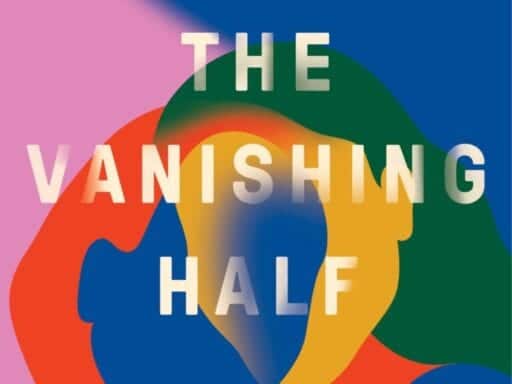In this new novel, one light-skinned twin marries a dark-skinned man. The other starts passing for white.
Mallard, the Louisiana town at the heart of Brit Bennett’s breathtaking new novel The Vanishing Half, is color-struck. So small that it can’t be found on any map, Mallard was founded to be a town of light-skinned black people. And each successive generation strives to make sure the generation that follows will be lighter still.
But Mallard’s devotion to pale skin doesn’t protect its people. The wealthiest residents of Mallard still work menial jobs for white people. They are still subject to prejudice and hate crimes. And before the book begins, one of Mallard’s sons is ripped from his home by white people and lynched, twice — once in his front yard, and then once in his hospital bed after he survived the first time.
The Vanishing Half revolves around the daughters of the lynched man. They are twins, Desiree and Stella, and after they turn 16, they flee Mallard and the site of their father’s murder for New Orleans. It’s the 1960s, and their options are limited. But we are told in the opening pages what will happen. Desiree, who is “the color of sand barely wet,” marries “the darkest man she could find.” And Stella runs away from Desiree, the same way she ran away from her hometown and her mother, and begins passing for white.
The Vanishing Half tracks Desiree and Stella across decades, all the way up into the ’90s, as their lives evolve into ghostly echoes of one another. Each has a daughter: Desiree’s Jude is “blueblack, like she flown direct from Africa,” and Stella’s Kennedy is a blonde with eyes so blue they look violet. Desiree leaves her abusive husband and returns to Mallard, Jude by her side, and does her best to help Jude endure her classmates’ colorism. Stella finds herself living with her wealthy husband in a gated community in Los Angeles, dreading the day a black family moves in and sees for her what she is. When she finds Kennedy playing with a black child, she slaps Kennedy’s face and teaches her a racial slur.
But when Stella is finally found out, it’s not by another black family in her neighborhood. It’s because Jude, now a student at UCLA, has made Kennedy’s acquaintance. And Jude recognizes her mother’s missing half when she sees her.
The Vanishing Half is the fairy tale we need right now to tell us the truth
All of these events unfold with the inevitability of a folktale or a fable — which is how The Vanishing Half, with its many folklorish narrative extravagances, reads. This book is not interested in literary realism. It is a fairy tale, and it makes no apologies for being so.
But within its fairy-tale structure, The Vanishing Half is able to be ambitious with its characters. Bennett duly enters into the minds of each of her major players, one after another, and she is thoughtful enough to be empathetic with each in their darkest moments. She is plainly more interested in the first generation than the second, however: Jude in particular is underwritten, and only comes fully alive in the tenderness of her relationship with her boyfriend, a trans man who is struggling to transition in the 1970s without any money.
But Bennett’s conflicted, closed-off Stella is a triumph of a character. She is constantly torn between experiencing her passing as a game that she is winning and as a betrayal of her deepest self. So when the black family that she has long feared finally moves into her neighborhood, Stella toys with telling the wife the truth about herself. After all, if it came down to it and the wife spilled Stella’s secret, who would everyone believe? Stella, of course.
“And knowing this,” Bennett writes, “she felt for the first time, truly white.”
Bennett is precise about tracking such gradations of power. She is also precise about her sentences, which are meltingly lush without ever becoming overripe. Reading The Vanishing Half at this moment in time, as America protests against the police killings of black people and the police respond with brutality, feels like reading a parable that is wiser and more beautiful than we deserve. One that is built around all the secrets buried in the rotten core of America’s racial history.
There is deep truth within fairy tales. And with The Vanishing Half, Bennett has written a marvel of one.
Support Vox’s explanatory journalism
Every day at Vox, we aim to answer your most important questions and provide you, and our audience around the world, with information that has the power to save lives. Our mission has never been more vital than it is in this moment: to empower you through understanding. Vox’s work is reaching more people than ever, but our distinctive brand of explanatory journalism takes resources — particularly during a pandemic and an economic downturn. Your financial contribution will not constitute a donation, but it will enable our staff to continue to offer free articles, videos, and podcasts at the quality and volume that this moment requires. Please consider making a contribution to Vox today.
Author: Constance Grady
Read More



